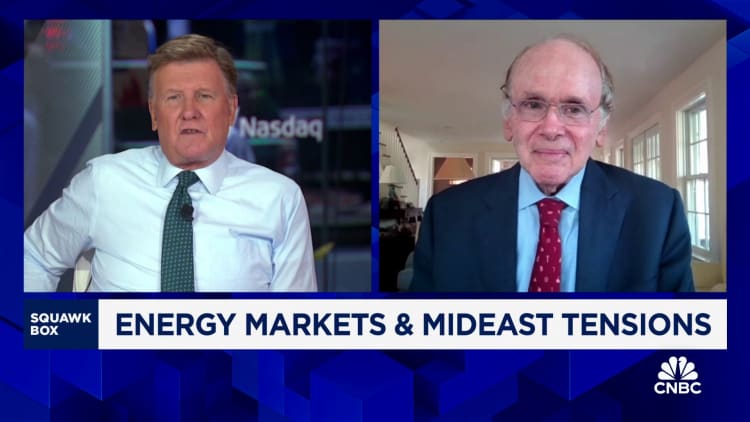- Crude oil futures fell for a fourth consecutive session Tuesday.
- West Texas Intermediate crude oil closed at a six-month low on Monday.
- Oil futures are tumbling on worries over a recession, even as Middle East tensions continue to rise.
Crude oil futures fell for the fourth session in a row Tuesday, as recession fears continue to overshadow the risk of a major escalation in the Middle East.
U.S. crude oil closed at a six-month low on Monday, after equity markets sold off on fears that the U.S. economy might tip into a recession. The S&P 500 and Dow Jones Industrial Average booked their worst day since in nearly two years.
The fear of a U.S. recession has hit oil markets as traders were already worried already about lackluster demand in China, the world’s second-largest economy.
Here are Tuesday’s energy prices:
- West Texas Intermediate September contract: $72.45 per barrel, down 49 cents, or 0.7%. Year to date, U.S. crude oil has gained 1%.
- Brent October contract: $75.96 per barrel, down 34 cents, or 0.45%. Year to date, the global benchmark has declined 1.4%.
- RBOB Gasoline September contract: $2.31 per gallon, down nearly 2 cents, or 0.84%. Year to date, gasoline is up 10%.
- Natural Gas September contract: $2.00 per thousand cubic feet, up 6 cents, or 3.19%. Year to date, gas is down 20.3%.
Oil markets have sold off despite the growing risk of major escalation in the Middle East. Israel is preparing for an attack by Iran after Hamas leader Ismail Haniyeh was assassinated in Tehran last week.
The oil market has largely looked past geopolitical tensions in the Middle East as crude supplies have not faced any major disruption. Analysts have warned for months that a direct conflict between Israel and OPEC member Iran could lead to a disruption of oil flows.
A rocket attack on a U.S. base in Iraq is believed to have injured several American personnel, a defense official told NBC News.
“It’s quite striking that the oil market so far is not pre-emptively pricing in the risk of what seems to be a very imminent conflict,” Daniel Yergin, vice chairman of S&P Global, said on CNBC’s “Squawk Box” on Tuesday.














